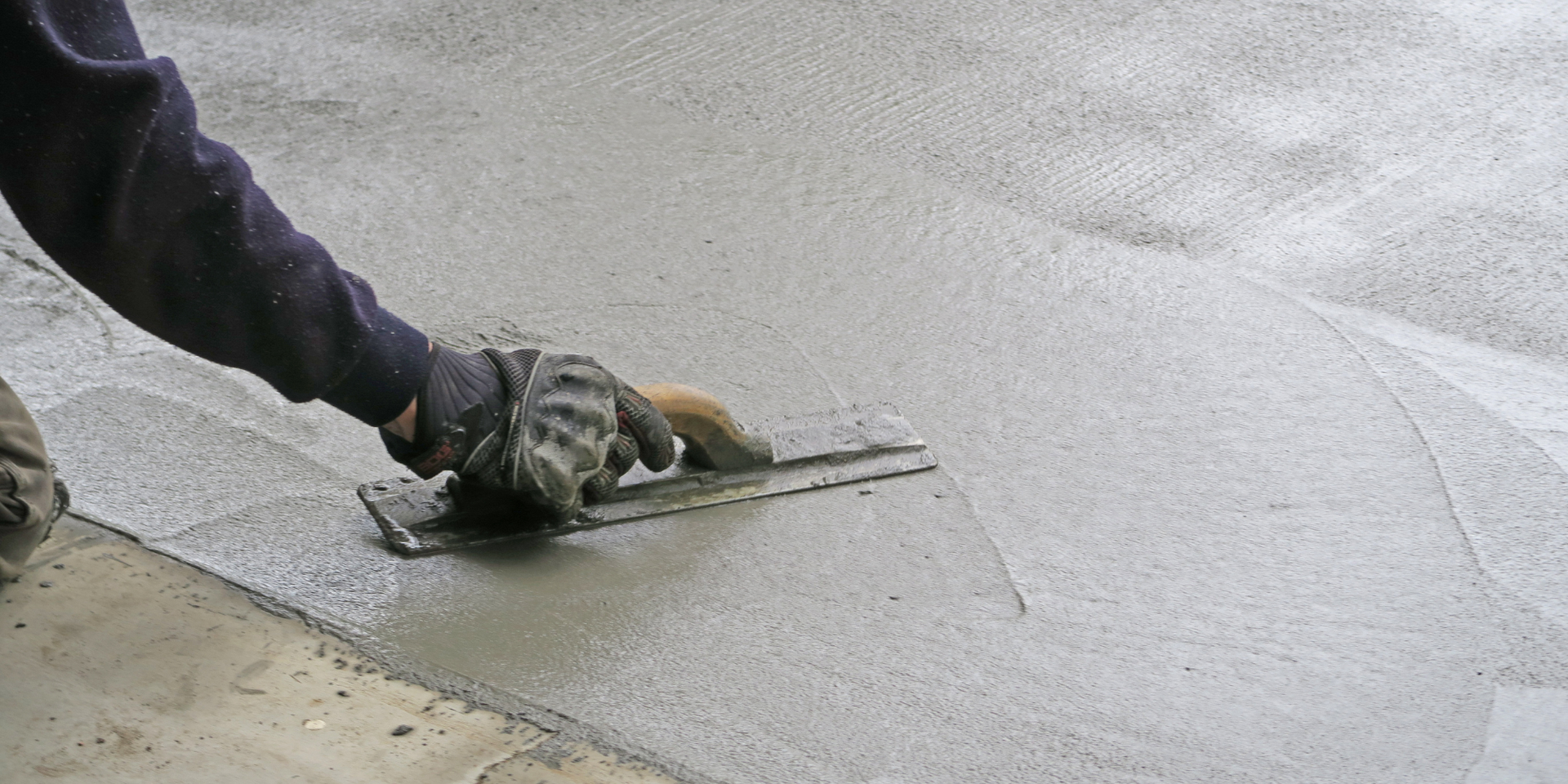What Causes Concrete to Crack in DFW?
What are Reasons my Concrete is Cracking in Dallas, Fort-Worth?
If you’ve lived in Dallas-Fort Worth for more than a minute, you already know that the weather has a mind of its own. One day it’s blazing hot and dry enough to bake a cake on your driveway, and the next, we’re all watching the skies for hail or a flash flood. And if you’ve got concrete anywhere around your home, like a driveway, patio, sidewalk, or foundation, chances are you’ve noticed a crack or two pop up over time.
It's one of the most common questions we get from homeowners across the Metroplex: “Why is my concrete cracking?” And honestly, it’s a good question, especially when you’ve spent good money installing something you thought would last for decades. Concrete is supposed to be strong and durable, right? So what gives?
Well, the answer is a mix of science, soil, and classic Texas weather. Cracking concrete is normal to some extent, but understanding what causes it, especially in the unique DFW environment, can help you prevent serious issues and know what to look for. Let’s break it all down.
It Starts With the Ground Beneath Our Feet
To understand why concrete cracks here in North Texas, we’ve got to start below the surface, literally. The soil in this region is notorious for causing problems. If you’ve ever tried to dig a fence post in July, you know what I’m talking about.
Most of the soil in the DFW area is heavy in clay, especially that black gumbo clay that likes to expand when it’s wet and shrink when it’s dry. During rainy spells, the soil swells up like a sponge. When the heat sets in, and it always does, the moisture disappears, and the soil contracts and pulls away from everything sitting on top of it. And that includes your concrete.
This swelling and shrinking puts a lot of stress on slabs, driveways, and even foundations. Over time, the constant movement underneath your concrete can cause it to crack. You might not even notice it at first—a little hairline crack here, a small split there—but left unchecked, those cracks can get wider, deeper, and more problematic.
And here's the kicker: this soil behavior isn't just an occasional thing. It happens every year, often multiple times a year. You get a wet spring, a scorcher of a summer, maybe some surprise fall rain, and the soil is just constantly doing its thing, shifting back and forth under your concrete.
The Weather Here Isn’t Doing You Any Favors
We’ve already touched on it, but it’s worth repeating, DFW weather is as dramatic as a Texas high school football rivalry. It’s not just the heat (though 100-plus-degree days definitely take a toll), it’s the wild temperature swings and the sudden storms that really stir the pot.
Concrete expands and contracts with temperature changes, just like the soil underneath. In the summer, when the surface heats up, the concrete expands. At night, or during a cold snap, it contracts. If your concrete doesn’t have the right control joints or expansion space built in, it’ll start to crack as it pushes against itself with nowhere to go.
Then there’s water. A torrential downpour can saturate the soil quickly, especially after a dry stretch when the ground is hard and compact. When the soil swells too fast, it can lift parts of the concrete unevenly, creating pressure points and—you guessed it—cracks.
Oh, and let’s not forget those freak cold fronts that roll in out of nowhere. If water seeps into tiny cracks and freezes overnight, it expands, making the crack worse. It’s not something we deal with every day in Texas, but even one or two freeze-thaw cycles a year can cause long-term damage.
Construction and Mix Matter More Than You Think
Even though soil and weather are big players in the cracking game, not all the blame falls on Mother Nature. Sometimes, it comes down to how the concrete was poured in the first place.
The quality of the concrete mix, the thickness of the slab, how it was reinforced, how fast it dried—these all play a role in whether or not cracks are going to show up later. For example, if too much water was added to the mix to make it easier to work with, it can end up being weaker overall. Concrete needs water to cure properly, but too much water can lead to more shrinkage and cracking as it dries out.
Reinforcement is another biggie. Rebar, wire mesh, or fiber additives can all help give concrete more strength and help hold it together under stress. If those reinforcements are skipped or not placed correctly, the concrete is more likely to crack over time, especially in our region where soil movement is almost a given.
And let’s talk timing. Concrete needs to be cured properly. That means keeping it moist for several days after pouring so it sets up evenly and gains strength gradually. But in the Texas heat, it can dry too fast if it’s not monitored. That quick drying process can cause early cracking before it even gets a chance to settle into place.
Tree Roots, Traffic, and Time
Outside of soil, weather, and construction, there are a few other sneaky causes of cracking in DFW. One big culprit? Tree roots. A big oak tree might be beautiful in your yard, but those roots can wreak havoc underneath your driveway or sidewalk as they grow. They push up from underneath, creating uneven surfaces that crack under pressure.
Heavy traffic is another issue. Concrete driveways are built to handle cars, but if you’ve got a heavy truck, trailer, or RV parked in the same spot day after day, it can create stress that leads to cracking—especially if the slab wasn’t designed with that kind of load in mind.
And finally, there’s the simple reality of time. Concrete is strong, but it's not invincible. Over the years, even the best-installed concrete will show signs of aging. Tiny shifts, small cracks, surface wear all adds up. The goal isn’t to eliminate cracking entirely (because that’s pretty much impossible), but to minimize it and keep your concrete strong for as long as possible.
So What Can You Do About It?
Here’s the good news: while you can’t change the Texas weather or the clay in the ground, there are ways to protect your concrete and reduce the chance of cracking.
Proper installation is the first line of defense. That means working with experienced professionals who understand how to pour and finish concrete in DFW conditions. They’ll know how to prep the base, add the right reinforcements, and build in joints that help control where cracks happen.
It also means regular maintenance. Keep your concrete clean and sealed, especially in high-traffic areas or around your pool. A good sealer helps repel moisture, protect against stains, and reduce damage from heat and UV rays.
And don’t ignore the little cracks when you first see them. Early repair can stop them from spreading and turning into bigger, more expensive problems. There are lots of great patching products and sealers available now, and in many cases, small cracks can be handled before they cause serious damage.
Lastly, keep an eye on trees and heavy equipment. Trim back roots if they’re creeping too close to your slab, and try not to park heavy vehicles in the same spot every single day if your concrete isn’t built for that kind of load
At the End of the Day
Concrete cracking might seem like one of those annoying facts of life in DFW, right up there with summer mosquitoes and the occasional ice storm in February, but understanding why it happens makes it a lot easier to deal with. Between our expansive clay soils, unpredictable weather, and the realities of everyday wear and tear, it’s no wonder concrete has a tough job around here.
The key is to stay ahead of the game. Make smart choices when you’re installing concrete, keep up with basic maintenance, and address problems early before they grow into something bigger. A little prevention goes a long way, especially in a place like Dallas-Fort Worth where nature has its own opinion on how things should settle.
So, if you’ve noticed cracks forming in your driveway, patio, or walkway, don’t panic. It doesn’t mean the whole thing’s falling apart. But it does mean it might be time for a closer look, and maybe a call to someone who understands the quirks of Texas concrete. After all, when the ground keeps shifting under your feet, it pays to have a solid plan.
Find This Helpful? Share This Post!




